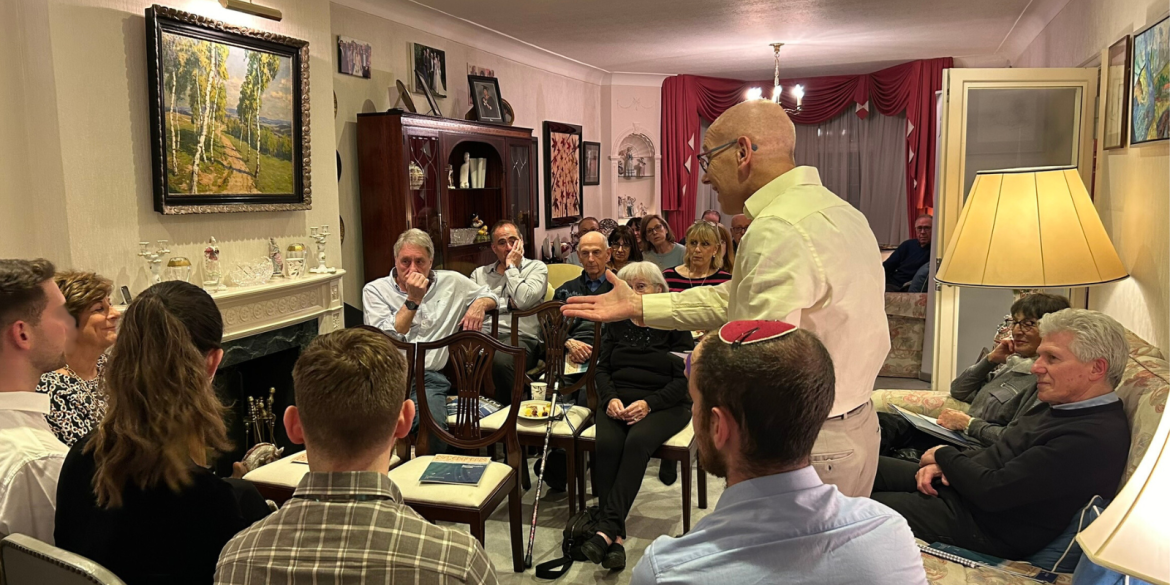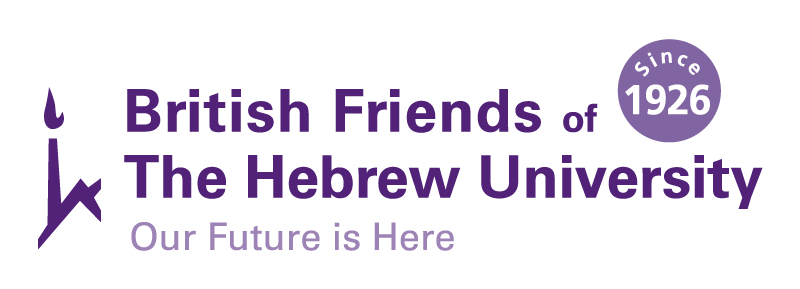
They are only 23 years old, but will soon qualify as medical doctors, a unique feature for 70 young people in Israel, accepted into the Tzameret track from among a thousand others who applied for the programme.
The Tzameret track is an elite programme jointly run by the Ministry of Defence, the Medical Corps of the Israel Defence Forces and the Hebrew University of Jerusalem, serving as an excellent path for medical studies. The aim of the programme is to train leading physicians for service in the Medical Corps and later in the healthcare system of Israel. Students in the programme undergo specialised courses in military medicine, such as military leadership and trauma medicine, and they engage in civilian and military site visits. In their sixth year, students in the programme can apply for a month abroad as part of student exchange programmes in selected destinations. After completing their studies, the young doctors enlist in the army, undergo officer training and integrate as military doctors in various units and bases throughout the country. Undoubtedly, this is an elite programme but a serving elite.
However, at this time, when nothing is normal, the cohort set to complete six years of study and become certified doctors will immediately enlist for reserve duty upon completion of their studies. ‘I was called and couldn’t say no’ said one of the students during a special evening held in London attended by guests involved in medical professions. These four Tzameret students came to the UK to participate in an accelerated course at Birmingham University Hospital specialising in emergency medicine. While we were amazed to hear their fascinating stories and overwhelming experience in the UK, they appreciated the warm hug and welcome they received from the attendees. Due to the sensitive situation, the identities of the four are confidential and their images will not be published, unlike previous years where Tzameret students visited us. However, we are pleased to share their stories and experiences in Israel and Britain while preserving their privacy. For the sake of their privacy, in the article, they will be referred to as R, N, M, D.
The choice of the Tzameret track was clear for all four. They all sought worthwhile service; some dreamed of becoming doctors from a relatively young age, while for others, the opportunity simply paved their way during high school. ‘Many teenagers in Israel are looking to serve meaningfully in the army. I volunteered with MDA for three years during high school, so I was oriented towards medical school and medicine from the very beginning. I wanted to reach my full potential and I felt that the best way for me to do that was to become a doctor in the army and help soldiers’, said R. ‘I take great pride in being part of a programme that aims to do the most I can to help our country and our community. That’s why I’m here’, added M. ‘I come from a military family; my dad was an officer in the air force for 20 years, so I grew up on air force bases. As a teenager, I spent a lot of time in hospitals due to family reasons, and that’s when I realised I wanted to become a doctor. Given this background, joining Tzameret was a natural path for me’, said D.
Their arrival in Birmingham was part of a mission in which they were sent to hospitals abroad, to learn about the local healthcare system, the functioning of hospitals, with a special emphasis placed on emergency medicine, such as intensive care, triage, and military medicine. They were quite impressed by the health system in the UK, knowing its challenges but acknowledging that there are some aspects that can be learned from in Israel. ‘We learned that the medical system here is centred around A&E; it seems very efficient at getting patients to where they need to be relatively quickly without wasting time or resources trying to treat the patient in the Emergency Department, which is different from Israel. The Israeli system can learn a thing or two from the UK’.
Generally, when Israelis abroad are asked where they’re from, they don’t rush to say they’re from Israel, especially on Uber. They have learned to be cautious. But during this challenging time, when it comes to young Israelis, one of whom is religious wearing a kippah, studying in an academic programme shared with the military, caution is doubled and multiplied. Each student had a distinct experience. R found the reception surprisingly warm despite initial fears following watching demonstrations in London.
N couldn’t hide her identity as she was introduced straight away as ‘the Israeli military service student’; she didn’t feel any hostility, but she admits she was cautious. ‘I also felt that it’s part of my job to influence or show them that we are human beings and it’s not all about the war’.
M encountered mixed reactions from an Iranian consultant. Despite challenges, they endeavoured to build personal connections and avoid political discussions. Overall, they found common ground in shared values, facilitating connections with others.
The academic year in Israel was scheduled to commence on 15th October, but the events of 7th October and the outbreak of the war postponed the opening of the school year several times until it officially commenced on 31st December 2023. However, for students in the Tzameret track who were set to begin their final academic year, the school year opened as usual due to the significant need of the army for medical personnel. While many students from all cohorts and many academic staff members were drafted into reserve duty, the army recognised the need to complete the training of 70 new doctors who are in their final year and integrate them quickly into the reserve and conscript service system. Therefore, these students were allowed to commence their school year “as usual”. However, even in these circumstances, everyone was called up for reserve duty at one point or another and were deployed wherever possible. They missed classes, and some were absent for over two months. ‘But the Hebrew University was great; they tried to help where they could. There’s a demand for doctors, and the University acknowledged that’.
‘Right now, the reserve duty we do is not like being a doctor in the army; we are placed wherever we are needed. It’s part of our programme to be wherever and do whatever we can to help’, said N. ‘I’m documenting injuries so the soldiers in field will learn to be better next time. Part of my role was to interview the soldiers who were wounded in combat once they arrived at the hospital, and ask them about what happened to them, how they were treated, and how they were evacuated to the hospital.’
‘We had a special Telegram page, and we sent our results on the same day to the medical officers in the field so they would know how to work better, what they could do to improve and provide the best care to the soldiers in the field’. Added M. While Interviewing patients in the hospital, M felt that it was also kind of a psychological service ‘because lots of soldiers suffer from different rated of PTSD and it is important for them to ventilate and talk about what happened’. ‘This is the first war where mental health was directly addressed, as far as I know’, said N. ‘In a different assignment, I was placed in a special unit meant to address PTSD. Soldiers who faced difficult situations and were not receiving the necessary treatment in their battalion were sent to this specific centre, where they received direct therapy from therapists who were continuously recruited due to the increased need for mental health support. I believe that in this specific war, the army began addressing mental health much more effectively’.
With hope for better days to come, the students shared what the future holds for them. Once they graduate, they’ll enrol to officers’ course and after that they will be based in units all over the country where they’ll be responsible for hundreds of soldiers and every aspect of their lives. ‘It’s like being a GP but for a group of hundreds of healthy 18-year-olds’, said D. But as military doctors, there would be occasions when they’ll have to treat civilians when the nearest doctor will be the military one. ‘If I’m assigned to a specific area in Israel, which is a 2-hour drive from any nearby hospital, I would also be responsible for giving emergency medical services for civilians’, said R. This applies to the Palestinian Authority as well. But since Israelis are not allowed to enter A zones, the person who needs help will have to come to us and we’ll wait for him at the border. In case we need to enter A zone, we will be accompanied with a team of combatants and in a special vehicle. That’s part of the meaningful thing to understand. Me being in the army means more life for everyone’.
We wish them and all their cohort friends the best of luck in their continuous meaningful service, and we thank Selina and Andrew Gellert for the warm hospitality.
